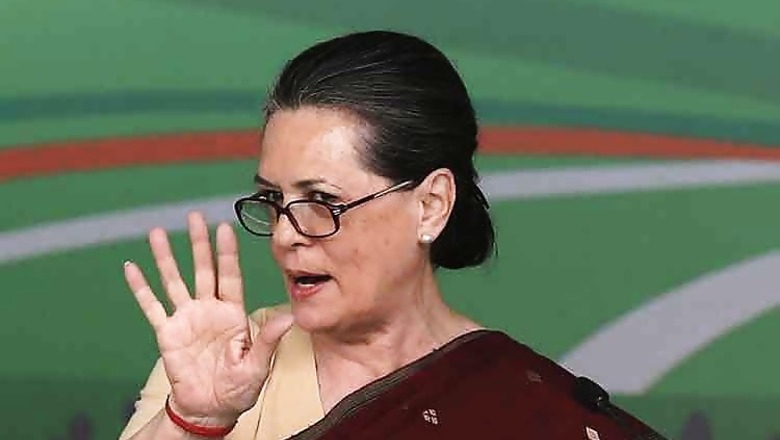
views
New Delhi: Congress President Sonia Gandhi on Tuesday used the occasion of the International Women's Day to seek early passage of the "long-awaited" Women Reservation Bill, asking the government to "give us women our legitimate due".
Addressing the Lok Sabha where women members were allowed to speak on women's issues by Speaker Sumitra Mahajan, she also criticised a law, making educational qualifications mandatory for contesting local polls in some BJP-ruled states, saying it denied women their right to contest.
Sonia attacked the government over its 'maximum governance' slogan, saying this also meant expanding the base of disagreement without inviting retribution, a reference to its crackdown on several NGOs.
Criticising the law in some BJP-ruled states like Haryana and Rajasthan which makes mimimum educational qualification necessary to contest local elections, the Congress chief said it denied a large number of women from SC/ST groups to exercise their constitutional rights and called for "urgent legislative attention" to undo it.
Sonia, who was the first member to speak on the issue of women empowerment, highlighted her party's role on the issue, saying the Congress gave the country the first woman Prime Minister, the first woman President and first woman Speaker.
She noted that it was due to former prime minister Rajiv Gandhi's vision that women accounted today for over 40 per cent of elected local body and panchayat posts.
Sonia then took a dig at the government over a host of issues including its slogan of 'maximum governance and minimum government'.
"Maximum governance is more than just accelerated pace of economic growth. It is also expanding the base of disagreement without inviting retribution or retaliation. Surely, maximum governance does not mean to have double standards in dealing with women's rights.
"Surely, maximum governance also means to give us women our legitimate due -- the long awaited women's reservation bill," Sonia said and told Speaker Sumitra Mahajan that "we can expect in you a strong ally..."
Though she did not make a direct reference to the government's crackdown on some NGOs, her reference to it was obvious as she sought giving "freedom" to the civil society, NGOs and activists.
She also referred to social evils like discrimination against girl child, foeticide and dowry and pitched for male colleagues' cooperation in confronting these challenges.
It was Congress, she said, that had pledged itself to the woman's voting rights when the country became independent.















Comments
0 comment